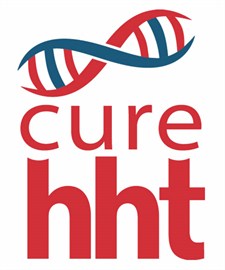About Us
Meet the Team
Conditions & Procedures
Patient Center
- Patient Stories
- Patient Resources
Appointments & Referrals
- Request an Appointment
- Refer a Patient
- Location & Directions
Education & Training
Residencies
- Vascular Surgery Integrated Residency (ACGME)
Fellowships
- Fellowship History
- Vascular Surgery Fellowship (ACGME)
- Limb Preservation Fellowship (NON-ACGME)
Clinical Fellows
- Vascular Surgery
- Limb Preservation
Medical Students
- Vascular Surgery Interest Group (VSIG)
The Wylie Society
- About the Wylie Society
Research
Clinical Research
- Clinical Trials
- Clinical Research Team
Vascular Surgery Labs
- Atherosclerosis Research Lab
- Conte Lab
- Wang Lab
Wylie Society
Symposium
News & Events

Rong Wang, Ph.D.
- Professor of Surgery
- Division of Vascular and Endovascular Surgery
- Mildred V. Strouss Endowed Chair in Vascular Surgery
- Director, Laboratory for Accelerated Vascular Research
Contact Information
Education
- 1980-84, Sichuan University, B.S., Biology
- 1984-88, Graduate School of Chinese Science and Technology University, Inst. of Genetics, M.S. candidate, Mammalian Genetics
- 1988-93, University of North Carolina, Chapel Hill, Ph.D., Biology (Angiogenesis)
Research Interests
- Angiogenesis Inhibitors
- Arteriogenesis
- Arteriovenous Malformations
- Carcinoma, Hepatocellular
- Collateral Vessel Formation
- Developmental Biology
- Developmental Growth
- Embryonic Development
- EphrinB2
- Gene Expression Regulation
- Neovascularization
- Notch Pathway
- Physiologic, Ischemia
- Stem Cells
- Vascular Development
- Vascular Physiology
Website Links
- Laboratory for Accelerated Vascular Research
- The Liver Center, UCSF
- UCSF Tetrad Program
- The Cardiovascular Research Institute at UCSF
- Helen Diller Family Comprehensive Cancer Center
- Regeneration Medicine and Stem Cell Research
- Developmental & Stem Cell Biology Graduate Program
- Biomedical Sciences Graduate Program
Biography
Rong Wang, Ph.D. is Professor of Surgery and Director of the Wang Lab. Previously, Dr. Wang had the distinction of being a post-doctoral fellow in the laboratory of Michael Bishop, MD, a winner of the Nobel Prize in Medicine and Chancellor of UCSF. Dr. Wang's team is engaged in state-of-the-art research involving key proteins necessary for blood vessel growth (angiogenesis) and arterial growth (arteriogenesis). They have found that the Notch 4 protein can cause dramatic blood vessel enlargement in adult animals and that the protein called focal adhesion kinase is essential for maintaining existing blood vessel structure. The ability to encourage the growth of blood vessels can increase healing in traumatic wounds, promote recovery from strokes and heart attacks, or generate the growth of new pathways around blocked arteries in the lower limbs to reduce the potential of gangrene and possible amputation.
Research & Funding
Data provided by UCSF Profiles, powered by CTSI
- Molecular Pathogenesis of Hereditary Hemorrhagic TelangiectasiaSponsor: NIH/NINDSSponsor ID: R01NS113429Funding Period:Feb 2020-Jan 2025Principal Investigator
- Identifying Molecular Regulators of Hereditary Hemorrhagic Telangiectasia In a Novel Mouse ModelSponsor: American Heart AssociationSponsor ID: 19TPA34910134Funding Period:Jul 2019-Jun 2022Principal Investigator
- Molecular Pathogenesis and Therapy for Critical Lim IschemiaSponsor: Tobacco Related Disease Research ProgramSponsor ID: High Impact Research Project AwardFunding Period:Jul 2018-Jun 2021Principal Investigator
- RBPJ and EphrinB2 as Molecular Targets to Treat Brain Arteriovenous Malformation in Notch4-Induced Mouse ModelsSponsor: Department of the ArmySponsor ID: W81XWH-15-PRMRP-IIRAFunding Period:Sep 2016-Sep 2020Principal Investigator
- Molecular Pathogenesis of Brain Arteriovenous MalformationSponsor: NIH/NINDSSponsor ID: R01NS067420Funding Period:Aug 2010-Sep 2013Principal Investigator
- Notch Signaling in Arterial-Venous SpecificationSponsor: NIH/NHLBISponsor ID: R01HL075033Funding Period:Apr 2005-Mar 2010Principal Investigator
Publications
MOST RECENT PUBLICATIONS FROM A TOTAL OF 50
Data provided by UCSF Profiles, powered by CTSI
- Huang L, Cheng F, Zhang X, Zielonka J, Nystoriak MA, Xiang W, Raygor K, Wang S, Lakshmanan A, Jiang W, Yuan S, Hou KS, Zhang J, Wang X, Syed AU, Juric M, Takahashi T, Navedo MF, Wang RA. Nitric oxide synthase and reduced arterial tone contribute to arteriovenous malformation. Sci Adv. 2023 05 26; 9(21):eade7280. View in PubMed
- Zhang S, Zhao H, Liu Z, Liu K, Zhu H, Pu W, He L, Wang RA, Zhou B. Monitoring of cell-cell communication and contact history in mammals. Science. 2022 Dec 02; 378(6623):eabo5503. View in PubMed
- Nielsen CM, Zhang X, Raygor K, Wang S, Bollen AW, Wang RA. Endothelial Rbpj deletion normalizes Notch4-induced brain arteriovenous malformation in mice. J Exp Med. 2023 02 06; 220(2). View in PubMed
- Prather BL, Ji S, Zhao Y, Shajan FJ, Zhao M, Buuh ZY, Maloney R, Zhang R, Cohen C, Wang RE. Fluorine-thiol displacement probes for acetaminophen's hepatotoxicity. Acta Pharm Sin B. 2023 Jan; 13(1):204-212. View in PubMed
- Kang J, Lewis TR, Gardner A, Andrade RB, Wang RE. Semi-syntheses and interrogation of indole-substituted Aspidosperma terpenoid alkaloids. Org Biomol Chem. 2022 05 18; 20(19):3988-3997. View in PubMed
- View All Publications
In the News
- UCSF Wang Lab - February 23, 2016Rong Wang, Ph.D., Professor of Surgery and Director of the Wang Lab, has been invited to speak at the The American Society for Investigative Pathology (ASIP) 2016 symposium on the topic of "Angiogenesis in Organ Development and Function." The ASIP 2016 Annual Meeting will be held April 2-6, 2016, in conjunction with Experimental Biology 2016 at the San Diego Convention Center, San Diego, CA. The Program Committee has assembled a vibrant scientific program encompassing diverse topics relevant [...]

- UCSF Wang Lab - July 01, 2015Rong Wang, Ph.D., Professor of Surgery and Director of the Wang Lab, was invited to give a plenary speech at the 11th HHT International Scientific & Medical Conference in Captiva Island, Florida on June 11-14, 2015. She spoke about Notch4-mediated formation of arteriovenous malformation, discussing how changes in the signaling pathway can cause both the progression and regression of the disease. The 2015 meeting brought together the world's leading HHT experts in both basic research as [...]

- Wang Lab - July 01, 2014Rong Wang, Ph.D., Professor of Surgery and Mildred V. Strouss Endowed Chair in Vascular Surgery at the University of California, San Francisco (UCSF), gave the keynote address at the 2014 commencement ceremony at San Francisco State University (SFSU). Dr. Wang spoke movingly about her childhood, living through China's Cultural Revolution, as well as the scientific and intellectual challenges in her current field of study. She also discussed the hardships she faced growing up in China as a [...]
- Wang Lab - September 02, 2008"UCSF scientists have discovered that a gene controlling whether blood vessels differentiate into arteries or veins during embryonic development is linked to a vascular disorder in the brain that causes stroke. The UCSF studies were done in mice, and the new findings are the first to provide information on both the progression and regression of this particular brain disorder, known as BAVM, and to provide molecular clues into the disease, which is not well-understood and chiefly affects young [...]

- Wang Lab - August 05, 2008Wang lab researchers discovered that activation of Notch signaling in the endothelium during brain development causes brain arteriovenous malformations (BAVMs) in mice. These mice may provide a powerful new tool in which to study BAVMs, which can cause devastating stroke in young people. This report was published in the August 5 issue of The Proceedings of the National Academy of Sciences.

- Wang Lab - August 03, 2008Rong Wang, Ph.D., Associate Professor of Surgery and Director of the Laboratory for Accelerated Vascular Research, spoke at the Gordon Research Conference on Endothelial Cell Phenotypes in Health & Disease in Biddeford, Maine. Dr. Wang's talk was entitled "Cell-Cell Signaling in Endothelium and Arterial Venous Hierarchy".

